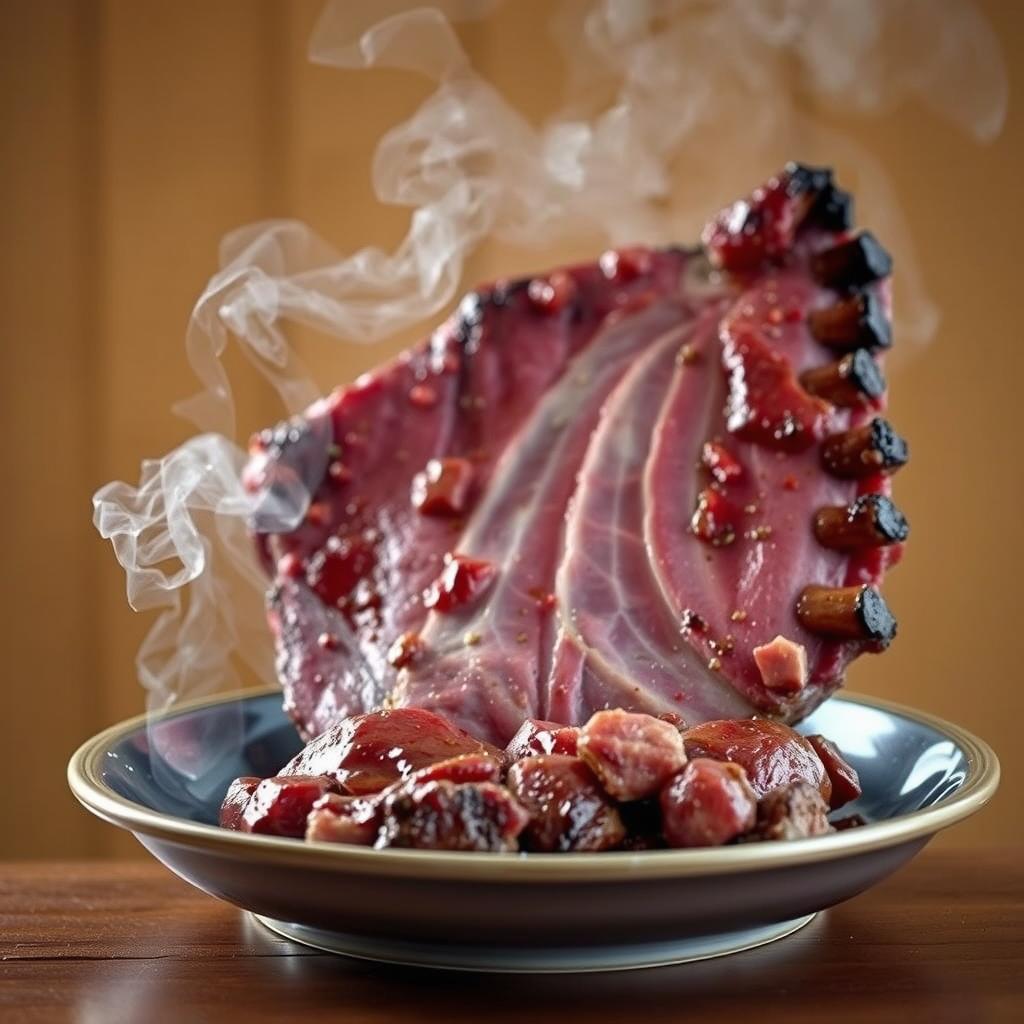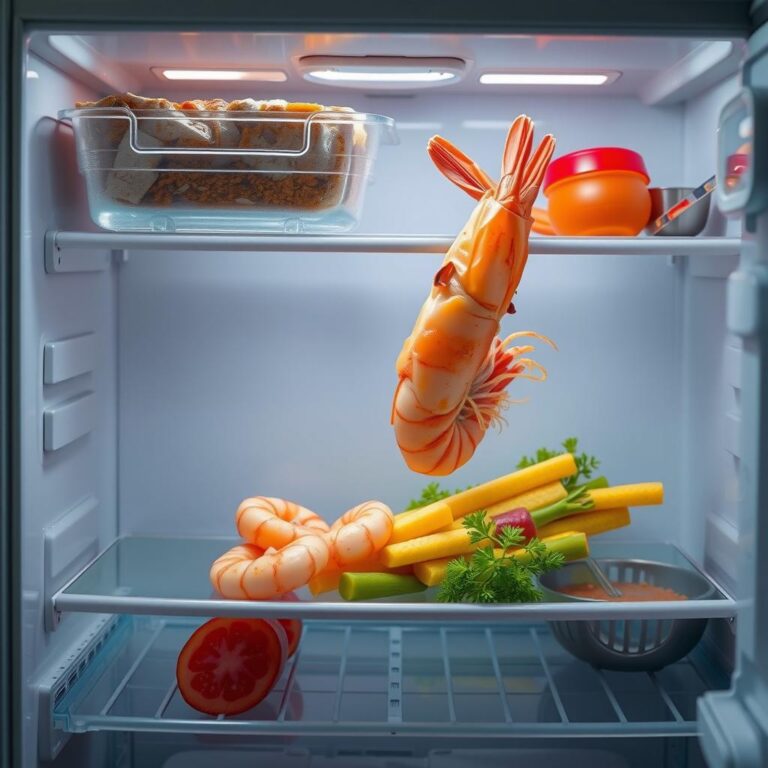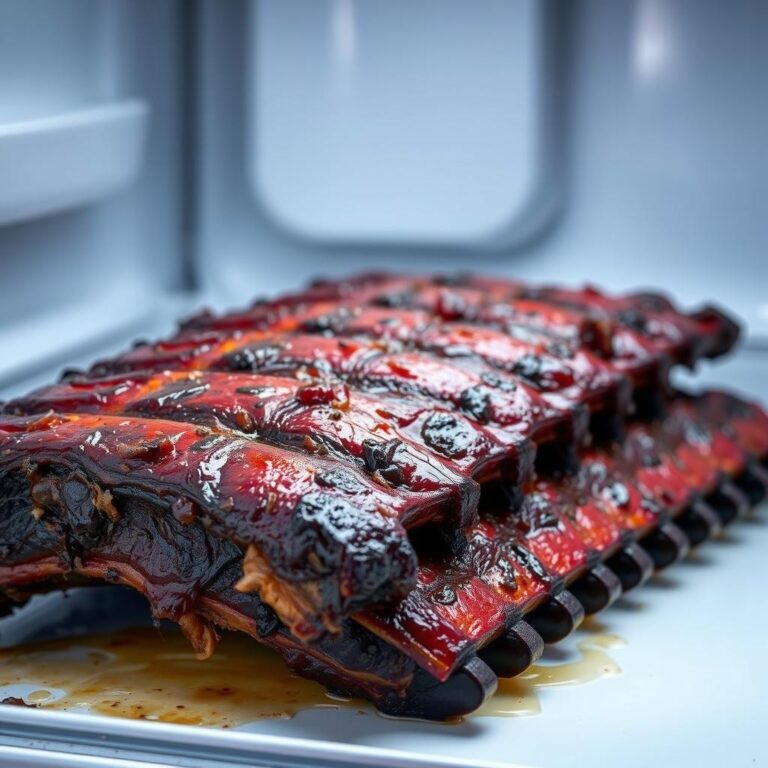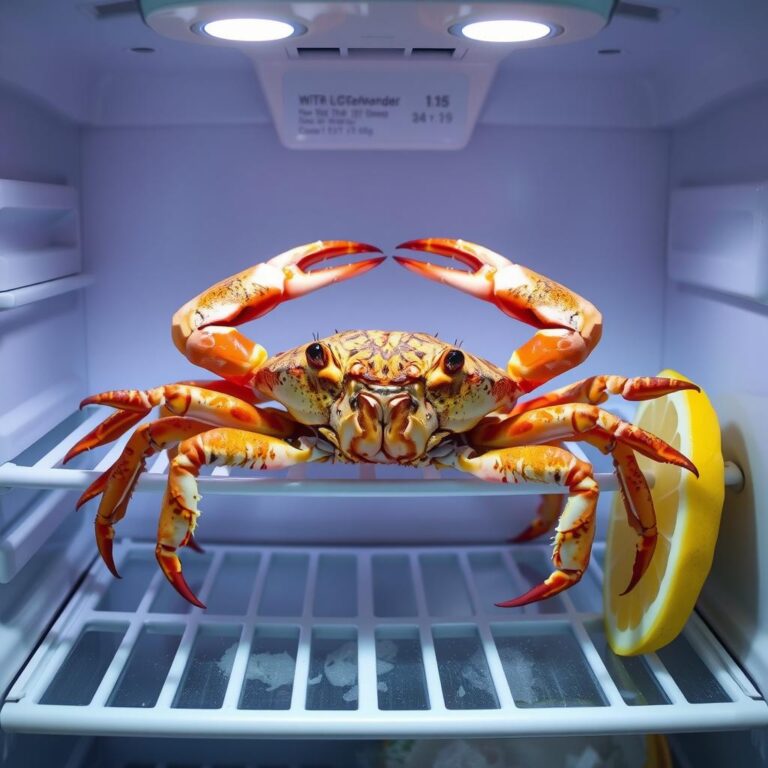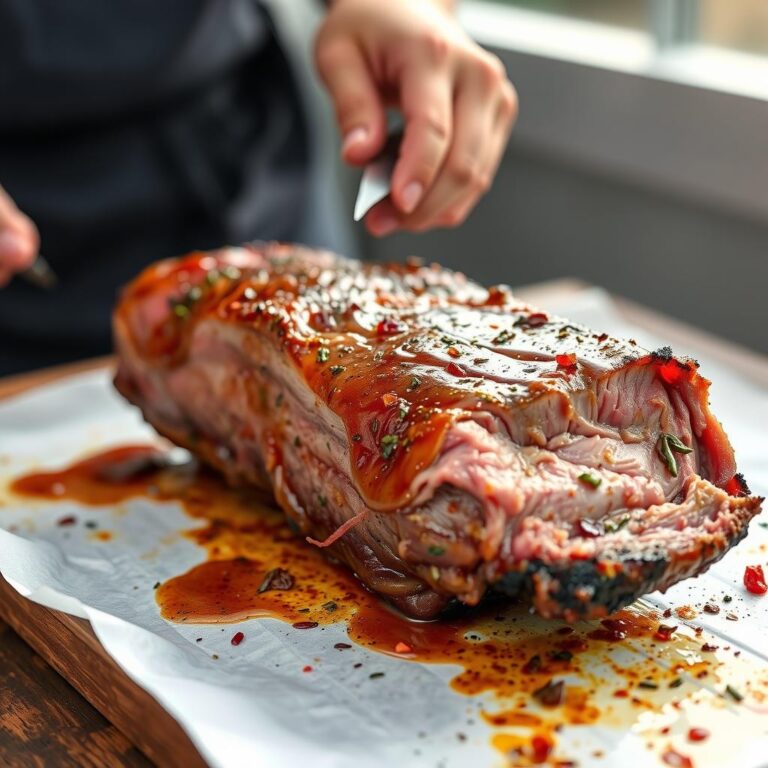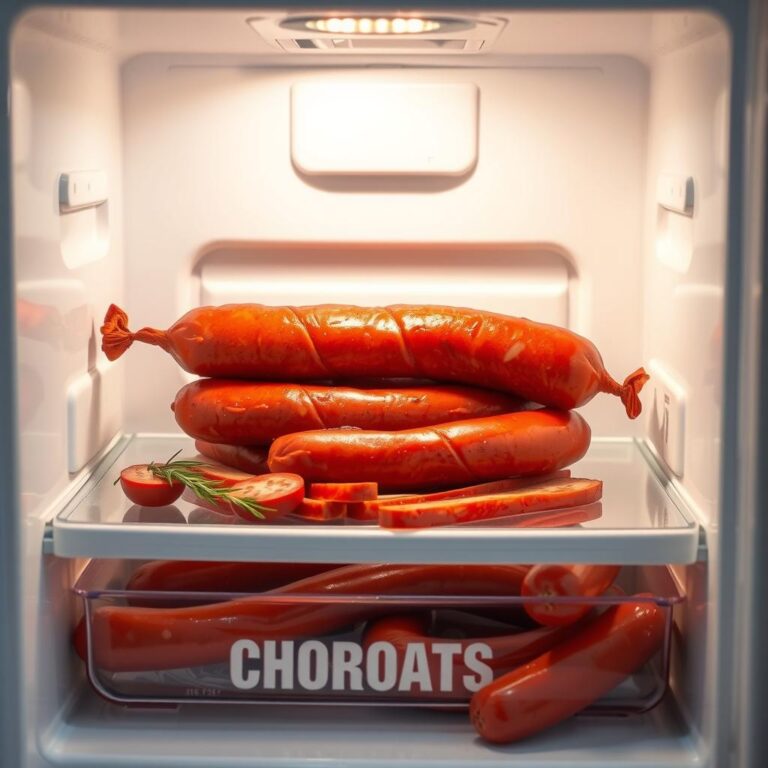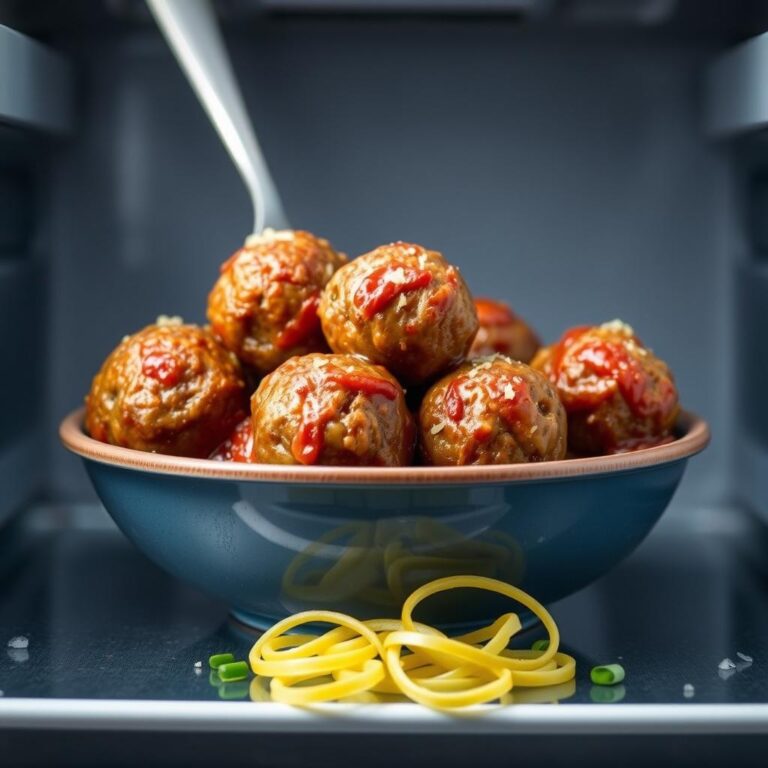Ever wondered how long are cooked ribs good for? We’ve all been there. You had a fantastic barbecue, and now your fridge is packed with leftover ribs.
So, here’s the real deal. How long can you keep those ribs before they head to the trash?
Understanding Cooked Ribs
So you’re wondering about those delicious cooked ribs sitting in your fridge.
Cooked ribs, just like other cooked meats, have a shelf life. Keeping them too long risks spoilage and waste.
Factors Affecting Shelf Life
Different things determine how long ribs stay good:
- Storage method – Time in the fridge vs. freezer
- Temperature – Consistency of your fridge’s cold and cozy environment
- Preparation – How they were cooked and initially served
The Clock’s Ticking
Want to maximize that rib life? Timing is everything:
- In the fridge: Cooked ribs last generally about 3-5 days.
- In the freezer: They’re good for up to 2-3 months.
Refrigeration slows bacteria growth but doesn’t stop it. Freezing halts bacterial activity altogether. However, the quality does diminish over time.
Signs Ribs Have Gone Bad
Even if your ribs are in their prime time, it’s crucial to check a few things:
- Odor: Does it have an off-putting or unfamiliar smell? It’s a no-go.
- Texture: Slimy or sticky surfaces are bad news.
- Color: Any discoloration like dull or darkened hues is a red flag.
These signals are your go-to pointers. When you spot one: proceed with caution.
Real Concerns and Natural Worries
Let’s talk about some real-life concerns. Food safety is no joke, especially when leftovers are involved. A friend of mine, Jessie, always makes extra because, let’s face it, who doesn’t love ribs seconds? But one time, Jessie got a little too adventurous with the storage time.
Knowing how long cooked ribs are good for could save you from an unnecessary stomach ache. It’s better to be cautious than to gamble on a batch past its prime.
Storing Your Delicious Ribs
Here’s how you can ensure they last as long as possible:
- Sealed containers: Keep air out. Air is the enemy here.
- Refrigerate quickly: Don’t let leftovers sit out for longer than two hours.
- Freezing properly: For longer storage options, freeze those babies.
Practical Tips From My Kitchen
Remember, the aim is to keep them fresh, flavorful, and bacteria-free.
- Wrap them tightly if opting for plastic or foil.
- Label and date them before popping them in the freezer.
And if you’re wondering about reheating, be sure to heat them thoroughly to a minimum of 165°F (73.89°C). Ensuring food safety means enjoying ribs without worry.
The disorder of tossed ribs is real, and the simple practice of watching for these key pointers makes sure your cravings hit the spot every time you dine. Storing them right and within the correct time frames guarantees quality and safety.
So, next time, you know exactly how long cooked ribs are good for. Bon appétit!
Ever wonder about the dangers of keeping those cooked ribs in the fridge for too long?
Trust me; no one loves dustbin diving for ruined leftovers.
If you’re serious about how long cooked ribs are good for, let’s dive into some insider knowledge. Spoiler alert, it’s more about understanding the process than just counting the days.
The Science Behind Spoilage
We need to talk bacteria. They’re the real reason your ribs have a ticking timer.
Bacteria love moisture and warmth. Cooked ribs, if not stored properly, are a fantastic playground for bacterial growth.
Temperature control is key. Make sure your fridge is consistently below 40°F (4°C).
Cooking Methods Matter
The way those ribs were initially whipped up can impact their shelf life too.
Grilled Ribs vs. Smoked Ribs
- Grilled ribs: They tend to have a shorter lifespan than smoked ribs.
- Smoked ribs: The smoking process acts as a natural preservative, potentially lasting longer if stored right.
Bottom line: know how they were cooked, and adjust your expectations accordingly.
Practicing Safe Food Storage
Ready to step up your food storage game? It’s easier than you’d think:
- Use airtight containers: Keep out any unwanted air.
- Label everything: Date your containers so you know when they’re nearing their end.
- Observe the 2-hour rule: Never let cooked ribs sit out for more than two hours.
That air-tight trap ensures no new bacteria joins the party.
When In Doubt, Throw It Out
If it smells funky or looks off, it probably is. That’s the gut instinct you need to develop for handling cooked ribs.
Cautiousness makes you a kitchen hero, saving others (and yourself) from a bad case of food poisoning.
Personal Anecdotes
A while back, I broke my golden rule. I tried to push those ribs just one more day beyond the recommended time-frame. Lesson learned.
One bellyache later, and it’s a mistake I won’t be making again.
Tackling the Freezer Game
Freezing is an art, and if you master it, those ribs could be delicious months later.
Two to three months is your target range for frozen ribs to taste just like fresh ones.
After that, the flavor drop-off starts. But hey, maybe those ice cream cravings took priority!
How to Freeze Like a Pro
- Remove excess air from the packaging
- Bundle with a double layer of protection, like foil and plastic wrap
- Consider vacuum sealing for optimal freshness
Quality must be preserved. The days of freezer-burned meals are over.
Frequently Asked Questions
How do I store cooked ribs without a fridge?
If the fridge isn’t an option, consume them within a few hours, considering room temperature safety.
What if the ribs have been in the fridge longer than 5 days?
Err on the side of caution and discard them. Better safe than sorry.
Can I reheat multiple times?
Limit reheating to once. Each time you reheat, the risk of bacteria increases.
Are leftover ribs safe for pets?
Consult your vet. Some seasonings like onions can be harmful to pets.
Conclusion
Understanding how long cooked ribs are good for lets you enjoy them without stress.
It’s all about the peace of mind that comes with safe storage and handling practices.
The next time you check the fridge, run through these steps. You’re armed with all the knowledge to make those ribs a hit trip after trip to the fridge.

